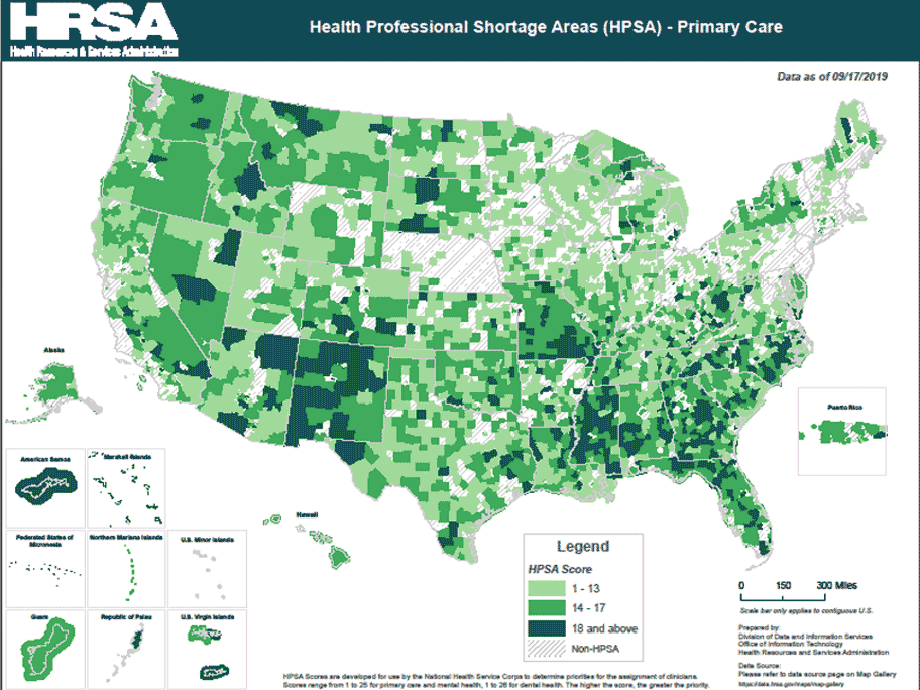AAFP to Congress: Reauthorize THCGME Program Now
Family Physicians Urged to Speak Out to Support Primary Care Pipeline
September 17, 2019 12:35 pm News Staff – Once again, time is running out for the Teaching Health Center Graduate Medical Education program. And once again, the AAFP is holding Congress' feet to the fire on the matter.
That's the crux of a Sept. 12 letter(2 page PDF) to House and Senate leaders that expresses strong support for the THCGME program and urges Congress to take action and reauthorize the program before it expires Sept. 30.
In the letter, which was signed by AAFP Board Chair Michael Munger, M.D., of Overland Park, Kan., the Academy highlights the importance of the program to the future of primary care in the United States.
"The THCGME program is, without question, one of the most successful, efficiently run programs in the country," the letter states. "It is a mission-focused program that has a proven track record of achieving its legislative mandate of training the next generation of primary care physicians. Since its inception, this program has successfully trained over 1,000 primary care physicians and dentists who, in return, have established practices and provided high-quality care to millions of Americans."

By the Numbers
Created by the Patient Protection and Affordable Care Act of 2010, the THCGME program provides GME funding directly to community health centers that expand or establish new primary care residency programs to address three key issues: the severe shortage of primary care physicians, their geographic maldistribution, and the need to attract and place physicians who are willing to serve in medically underserved areas.
Of the more than 900 primary care physicians the program has produced to date, 65% are family physicians, and 58% of THCGME residency graduates have reported practicing in a medically underserved or rural community.
The AAFP has long been a proponent of the THCGME program. Earlier this year, two family physicians testified before a Senate committee about the value of primary care workforce programs. The Academy provided testimony(5 page PDF) to the Senate Health, Education, Labor and Pensions Committee highlighting the Community and Public Health Programs Extensions Act (S. 192), which would renew funding for the THCGME, National Health Service Corps and community health center programs for five years.
Story Highlights
The Academy has also expressed support for the Training the Next Generation of Primary Care Doctors Act of 2019 (S. 1191). This bill goes even further than S. 192 in that it not only renews funding for the THCGME program for five years, but also increases funding for existing residency programs from $126.5 million per year to an average of $141 million per year, with priority given to new programs in rural and underserved communities. The AAFP said it was "pleased to support this important legislation" in a Jan. 30 letter(1 page PDF) to the bill's sponsors.
Since January, a THCGME program extension has been included in legislation passed by both House and Senate health care committees.(4 page PDF) If approved, such a long-term renewal would provide the stability teaching health centers have needed for years. At present, however, Congress has yet to bring any of the proposed laws to a vote.
In a July letter(2 page PDF) to leaders of the House Energy and Commerce Committee, the AAFP celebrated this progress but also urged them to consider increasing funding to ensure growth into new communities to better address the nation's health care goals.
And just this past week, 45 House members echoed that same message in a letter to those same committee leaders.
Time to Speak Out
The Academy's Sept. 12 letter concludes by driving home the need to provide adequate, stable funding without delay for a program that has proven so successful in helping to address the shortage of primary care physicians in the United States and ensure that tens of millions of Americans in medically underserved and rural communities have access to essential primary care services from a local physician.
"The introduction of unnecessary uncertainty regarding the program's future potentially damages the THCGME program," the letter states. "This program is deserving of immediate, long-term authorization, and immediate congressional action on this program is of the highest importance to the AAFP. Given that the THCGME program has unwavering bipartisan support, we see no reason why reauthorization should be further delayed."
To help achieve that goal, the AAFP is encouraging members to use the Academy's Speak Out tool to address their legislators directly and craft a message that expresses their support for the program and reauthorization of its funding.